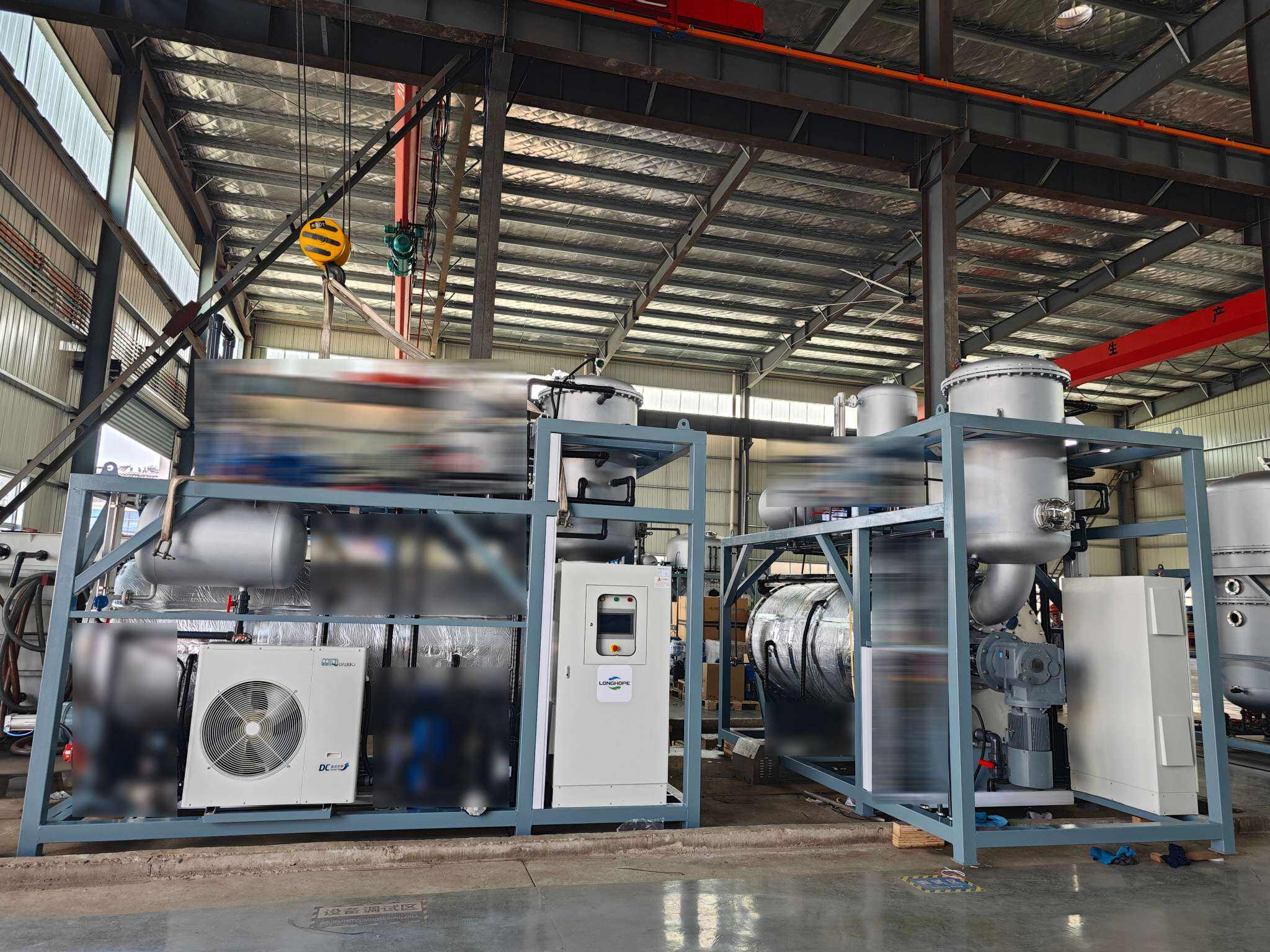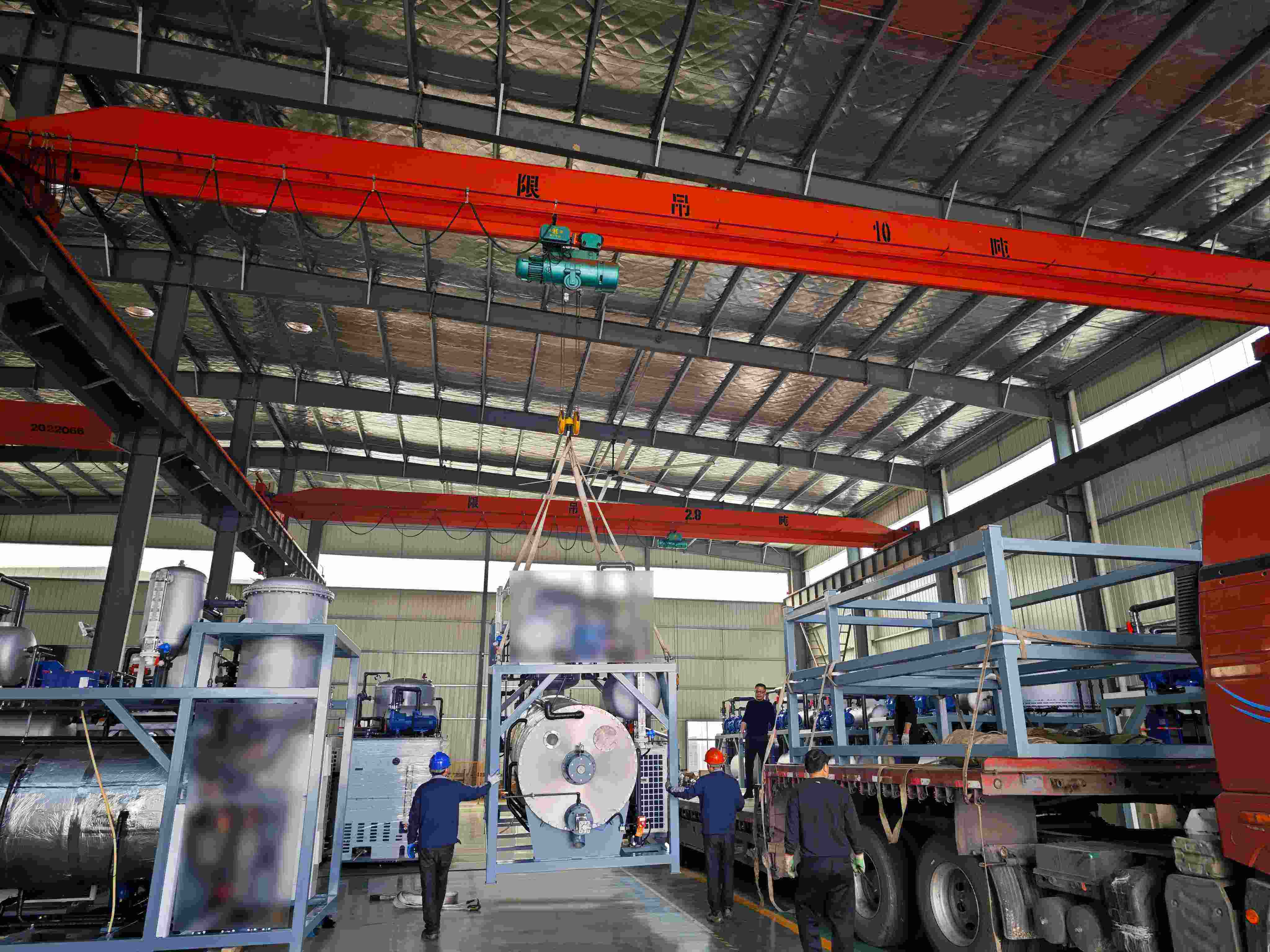Top Benefits of Using a Crystallizer Machine in Your Facility
Introduction to Crystallization Technology
Industrial facilities constantly seek methods to enhance efficiency, reduce costs, and improve product quality. One of the most widely adopted technologies in industries such as pharmaceuticals, chemicals, food processing, and wastewater treatment is the use of a Crystallizer Machine. This equipment plays a crucial role in separating, purifying, and recovering valuable products by converting liquid solutions into solid crystalline forms. With growing emphasis on sustainability, process efficiency, and consistent product quality, crystallization technology has become a cornerstone of modern industrial operations.
What Is a Crystallizer Machine?
A Crystallizer Machine is specialized equipment designed to induce the formation of crystals from a liquid solution. The process involves controlled cooling, evaporation, or chemical reactions that result in the separation of solid crystals from the liquid phase. These crystals are then collected for further use, refining, or packaging, depending on the industry. By offering precise control over factors such as temperature, concentration, and agitation, a Crystallizer Machine ensures consistency and efficiency in producing high-purity products.
Benefits of Using a Crystallizer Machine
Enhanced Product Purity
One of the primary advantages of a Crystallizer Machine is its ability to deliver highly pure end products. In industries like pharmaceuticals, purity is not just desirable but mandatory for safety and regulatory compliance. By controlling nucleation and crystal growth parameters, crystallization effectively removes impurities, resulting in products that meet stringent quality standards.
Cost-Effective Recovery of Materials
Many industries generate by-products or waste streams that still contain valuable compounds. A Crystallizer Machine allows facilities to recover and reuse these materials instead of discarding them. For instance, in the chemical industry, salts or acids can be crystallized and reused, reducing raw material costs and minimizing waste.
Improved Process Efficiency
By automating the crystallization process, a facility can achieve higher throughput with less manual intervention. Modern Crystallizer Machines are equipped with sensors and digital controls that allow operators to monitor conditions in real time. This level of automation enhances efficiency, reduces labor costs, and minimizes human error.

Energy Savings
Compared to other separation processes such as distillation, crystallization often consumes less energy. Evaporative and cooling crystallizers can be designed to optimize energy usage, particularly when integrated with heat recovery systems. As energy costs rise, the energy-saving aspect of a Crystallizer Machine makes it a compelling choice for facility managers.
Scalability and Flexibility
Crystallizer Machines are available in various sizes and configurations, from lab-scale models for research and development to large-scale industrial systems. This scalability allows facilities to adopt crystallization at any stage, whether for pilot testing new products or for full-scale manufacturing. Furthermore, machines can be adapted for different compounds, making them versatile tools in multi-product facilities.
Consistent Product Quality
In industries where uniformity is critical, such as food production or specialty chemicals, the ability of a Crystallizer Machine to produce crystals with consistent size and shape is a significant benefit. Controlled crystal formation enhances not only the quality but also the performance of the final product, ensuring reliability in applications ranging from pharmaceuticals to construction materials.
Environmental Benefits
Sustainability has become a top priority across industries. Crystallizer Machines contribute by enabling the recovery of materials from wastewater streams, reducing the need for raw material extraction, and minimizing waste disposal. This aligns with circular economy principles, where resources are reused rather than discarded, lowering the facility’s environmental footprint.
Applications Across Industries
Pharmaceutical Industry
In pharmaceuticals, crystallization is used to produce active pharmaceutical ingredients (APIs) with precise purity and particle size distribution. A Crystallizer Machine ensures that drugs meet strict regulatory requirements while maintaining efficiency in production.
Food and Beverage Industry
The production of sugar is one of the oldest examples of crystallization. Modern Crystallizer Machines are used not only for sugar but also for salt, dairy products, and specialty food ingredients. Controlled crystallization ensures consistent taste, texture, and quality.
Chemical Industry
Chemicals such as fertilizers, pigments, and industrial salts rely on crystallization for purification and recovery. Crystallizer Machines provide cost-effective and scalable solutions that help chemical manufacturers reduce waste and optimize yield.
Wastewater Treatment
Facilities dealing with wastewater often face challenges in removing dissolved solids. Crystallizer Machines can recover salts and other compounds, leaving behind cleaner effluent and reducing the environmental impact of wastewater discharge.
Mining and Metallurgy
Crystallization plays an important role in recovering valuable minerals and metals from solutions. Crystallizer Machines are used to extract compounds like lithium salts, which are vital for battery production in renewable energy applications.
Key Features of Modern Crystallizer Machines
Automated Controls
Modern machines are equipped with automated systems that regulate temperature, pressure, and concentration. This ensures consistent operation and reduces the need for constant manual supervision.
Customizable Design
Facilities can customize their Crystallizer Machine to suit specific materials and process requirements. From cooling crystallizers to evaporative models, options are available for different industrial needs.
Integration with Other Systems
Crystallizer Machines can be integrated with other process equipment, such as filtration or drying units, to create a seamless production line. This integration reduces handling time and boosts overall efficiency.
Safety Features
Safety is critical in industries like chemicals and pharmaceuticals. Modern Crystallizer Machines include built-in safeguards to prevent overpressure, overheating, or system failures, ensuring safe and reliable operation.
Challenges and Considerations
Initial Investment
The cost of acquiring a Crystallizer Machine can be significant, especially for large-scale industrial units. However, the long-term benefits in energy savings, material recovery, and improved efficiency often justify the investment.
Technical Expertise
Operating and maintaining a Crystallizer Machine requires skilled personnel. Facilities may need to invest in training or hire experienced operators to fully utilize the technology.
Maintenance Requirements
Like all industrial equipment, Crystallizer Machines require regular maintenance to ensure reliable performance. Neglecting maintenance can result in reduced efficiency or unexpected downtime.
The Future of Crystallization Technology
The future of Crystallizer Machines lies in greater automation, digital integration, and sustainability. With advancements in artificial intelligence and IoT, machines will become even smarter, capable of predictive maintenance and real-time optimization. As industries focus on reducing their environmental impact, crystallization will play a central role in resource recovery and waste minimization. Furthermore, research is ongoing into developing energy-efficient crystallization processes that use renewable energy sources, further enhancing the technology’s sustainability.
Conclusion
Using a Crystallizer Machine in your facility brings multiple benefits, including improved product purity, cost savings, energy efficiency, and environmental advantages. Its applications span diverse industries, from pharmaceuticals and food to chemicals, mining, and wastewater treatment. While the initial investment and expertise required may pose challenges, the long-term advantages in efficiency, sustainability, and profitability make it a valuable addition to modern industrial operations. As technology continues to evolve, the Crystallizer Machine will remain a critical component in advancing industrial performance and sustainability.
FAQ
What is the main purpose of a Crystallizer Machine?
Its primary purpose is to separate and purify compounds by forming crystals from a liquid solution under controlled conditions.
Which industries benefit most from using a Crystallizer Machine?
Pharmaceuticals, food and beverage, chemicals, wastewater treatment, and mining industries benefit significantly from crystallization technology.
How does a Crystallizer Machine improve sustainability?
It recovers valuable materials from waste streams, reduces raw material consumption, and minimizes environmental impact.
Is a Crystallizer Machine cost-effective?
Yes, while initial costs may be high, long-term savings in raw material recovery, energy efficiency, and reduced waste disposal outweigh the investment.
What types of Crystallizer Machines are available?
Common types include cooling crystallizers, evaporative crystallizers, and draft-tube crystallizers, each suited for specific applications.
Do Crystallizer Machines require skilled operators?
Yes, operating and maintaining them effectively requires trained personnel familiar with crystallization processes and equipment.
Can Crystallizer Machines handle wastewater streams?
Yes, they are widely used in wastewater treatment to recover salts and reduce the environmental impact of effluent.
What is the role of automation in modern Crystallizer Machines?
Automation allows real-time monitoring and control of parameters, ensuring consistent quality and reducing the need for manual oversight.
How do Crystallizer Machines contribute to product quality?
By controlling crystal size, shape, and purity, they ensure products meet regulatory and performance standards.
What future developments are expected in crystallization technology?
Future innovations include integration with IoT, predictive maintenance, renewable energy use, and improved energy efficiency.
Table of Contents
- Top Benefits of Using a Crystallizer Machine in Your Facility
- Introduction to Crystallization Technology
- What Is a Crystallizer Machine?
- Benefits of Using a Crystallizer Machine
- Applications Across Industries
- Key Features of Modern Crystallizer Machines
- Challenges and Considerations
- The Future of Crystallization Technology
- Conclusion
-
FAQ
- What is the main purpose of a Crystallizer Machine?
- Which industries benefit most from using a Crystallizer Machine?
- How does a Crystallizer Machine improve sustainability?
- Is a Crystallizer Machine cost-effective?
- What types of Crystallizer Machines are available?
- Do Crystallizer Machines require skilled operators?
- Can Crystallizer Machines handle wastewater streams?
- What is the role of automation in modern Crystallizer Machines?
- How do Crystallizer Machines contribute to product quality?
- What future developments are expected in crystallization technology?

